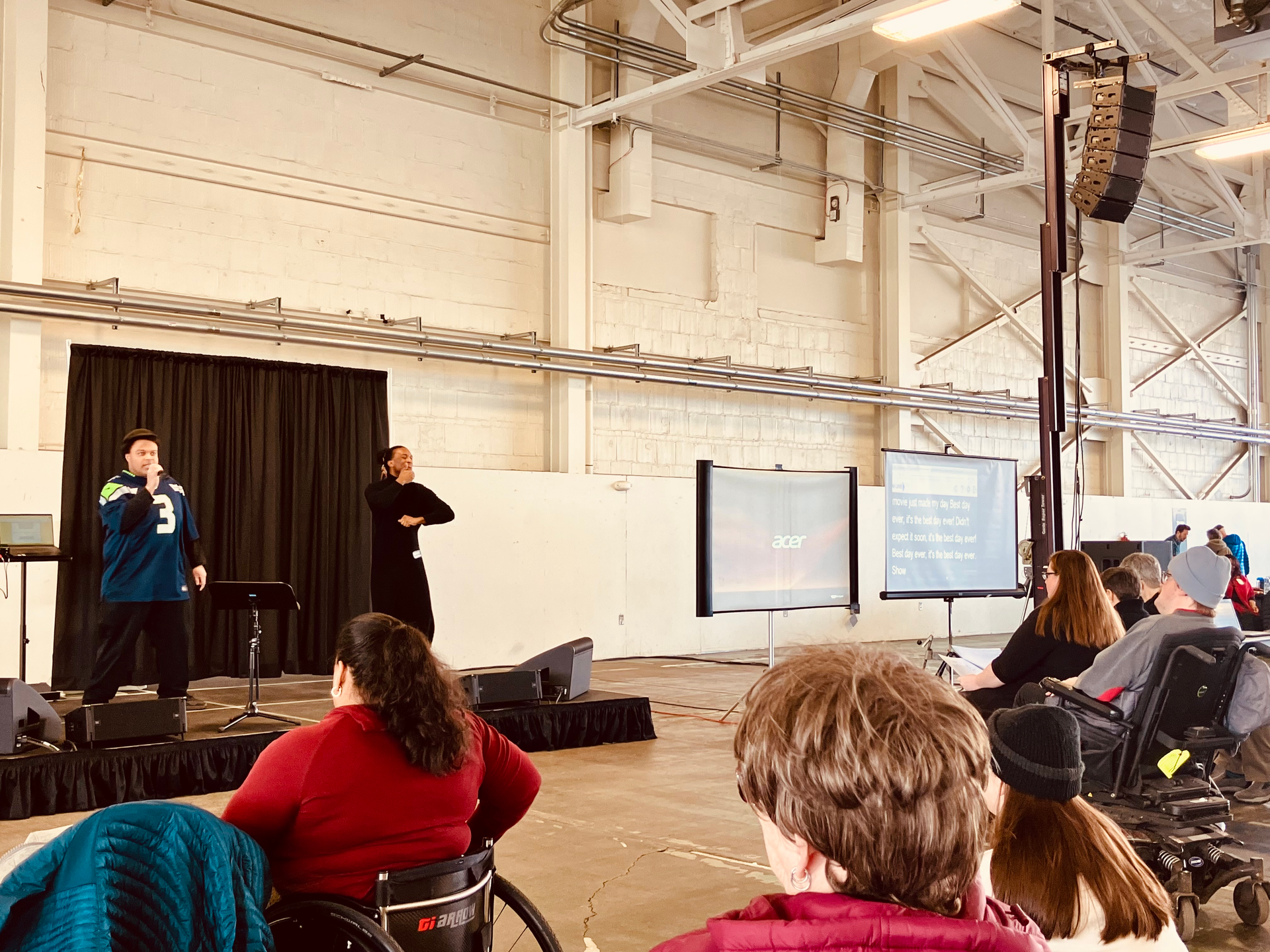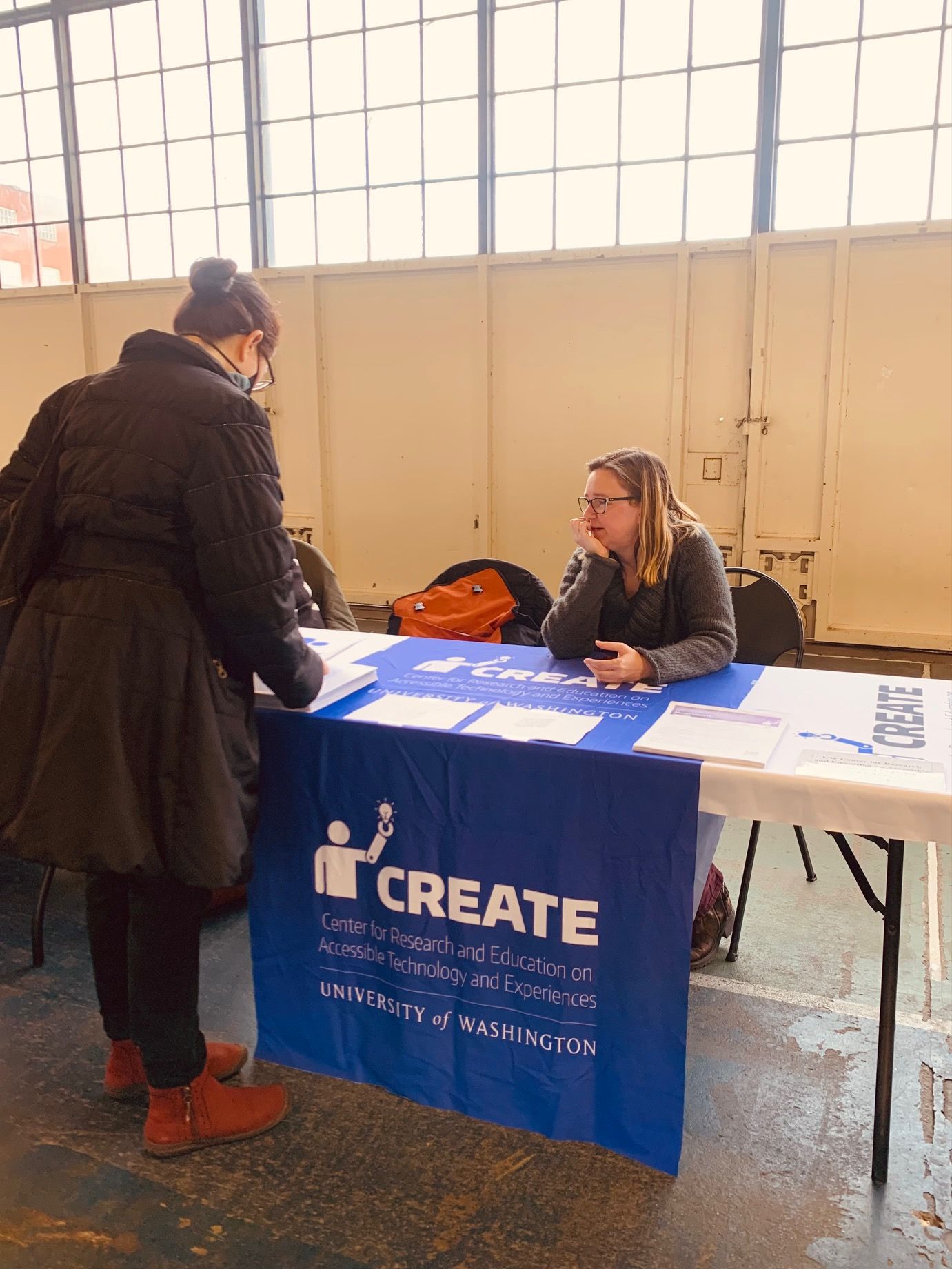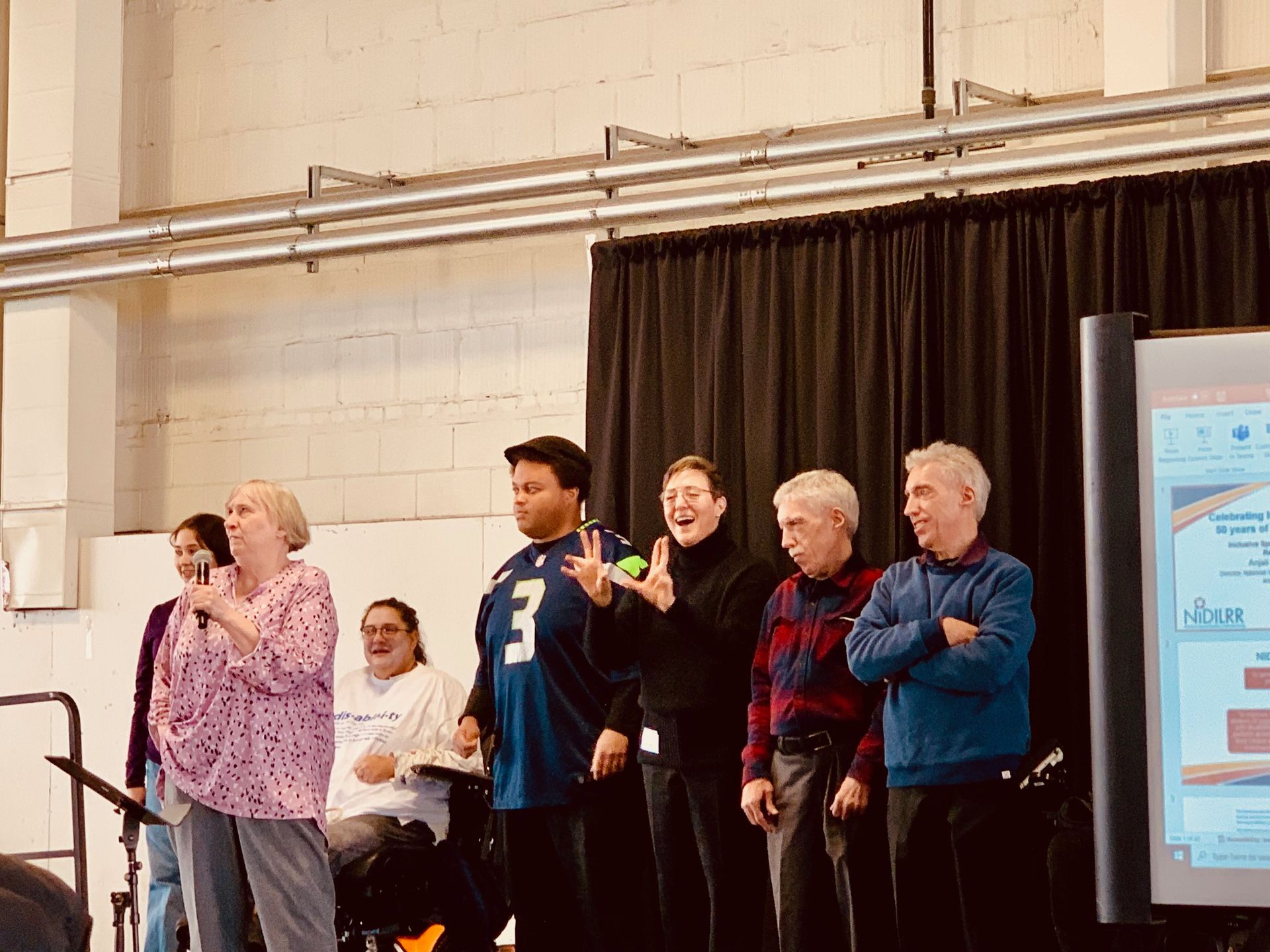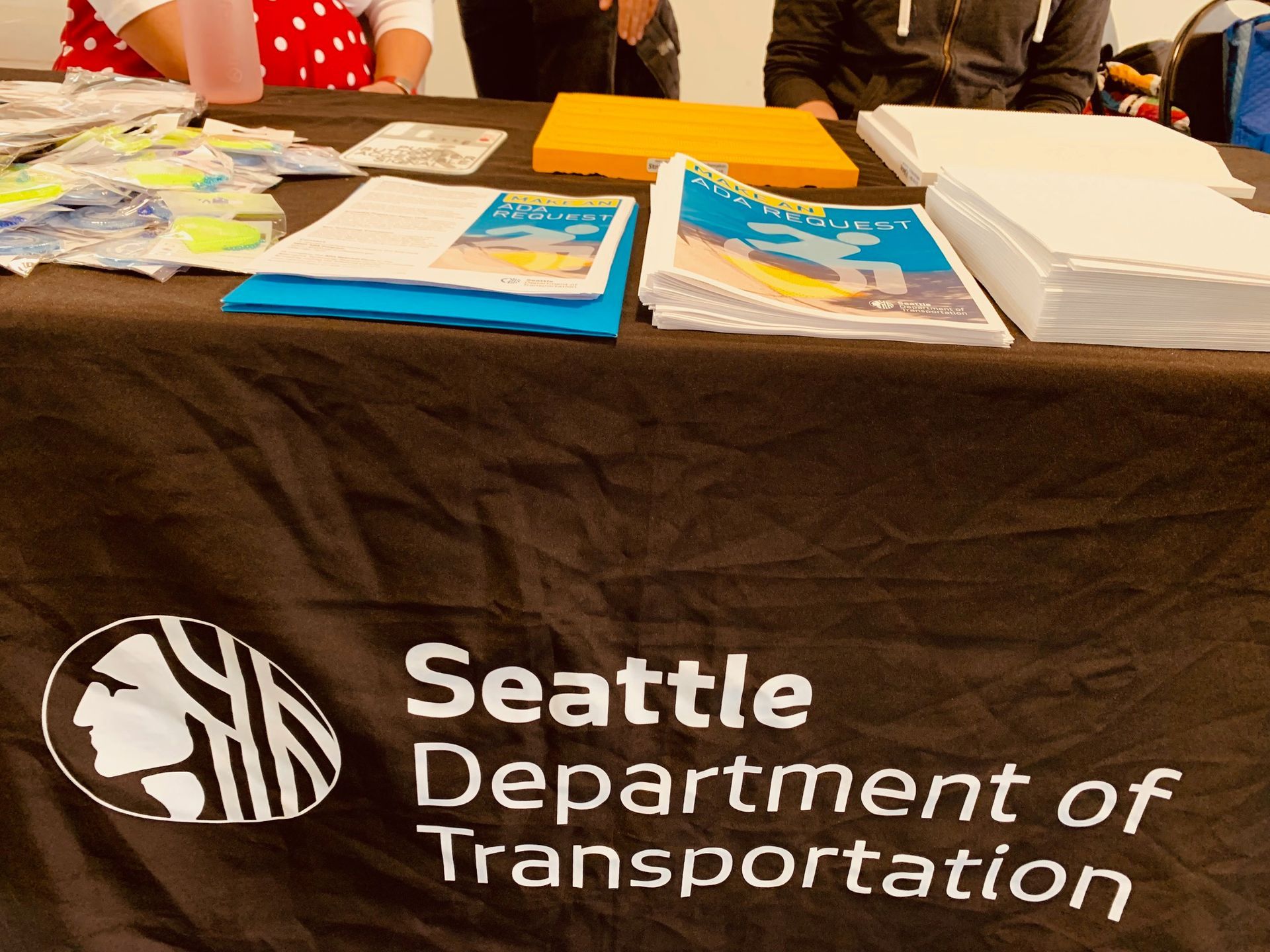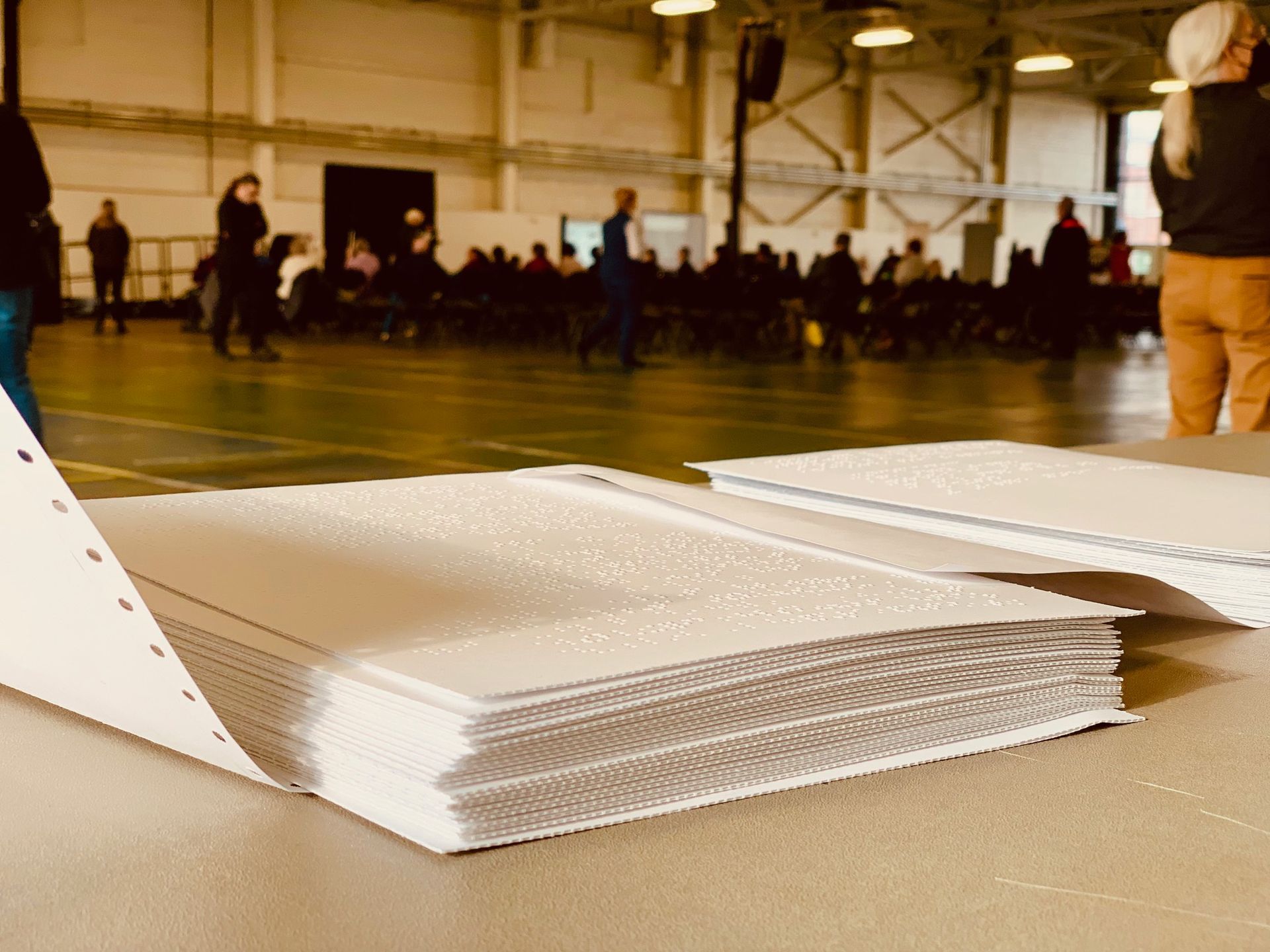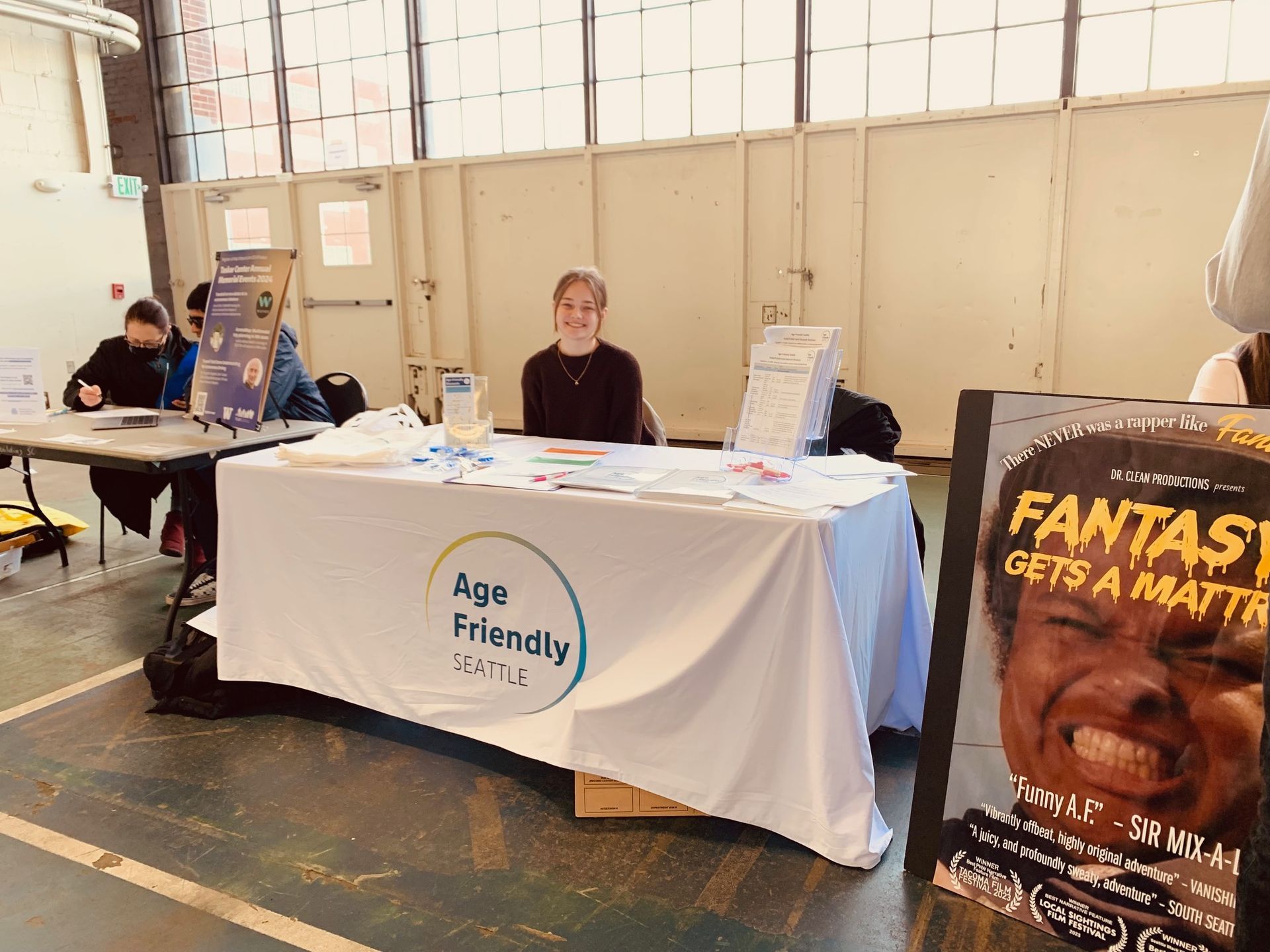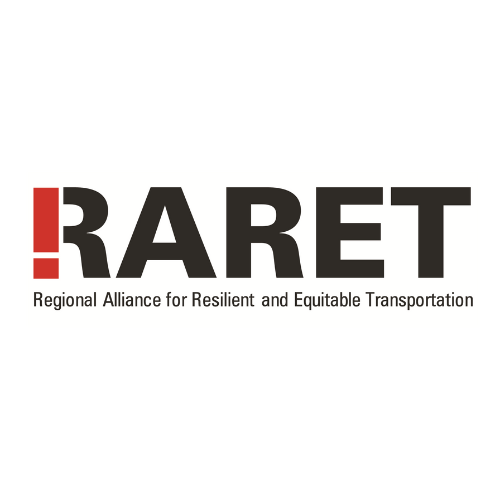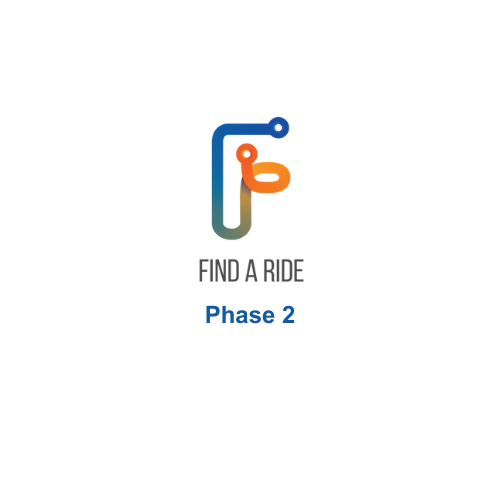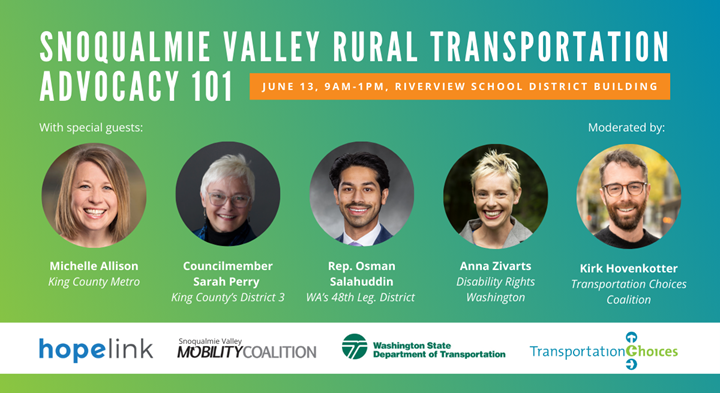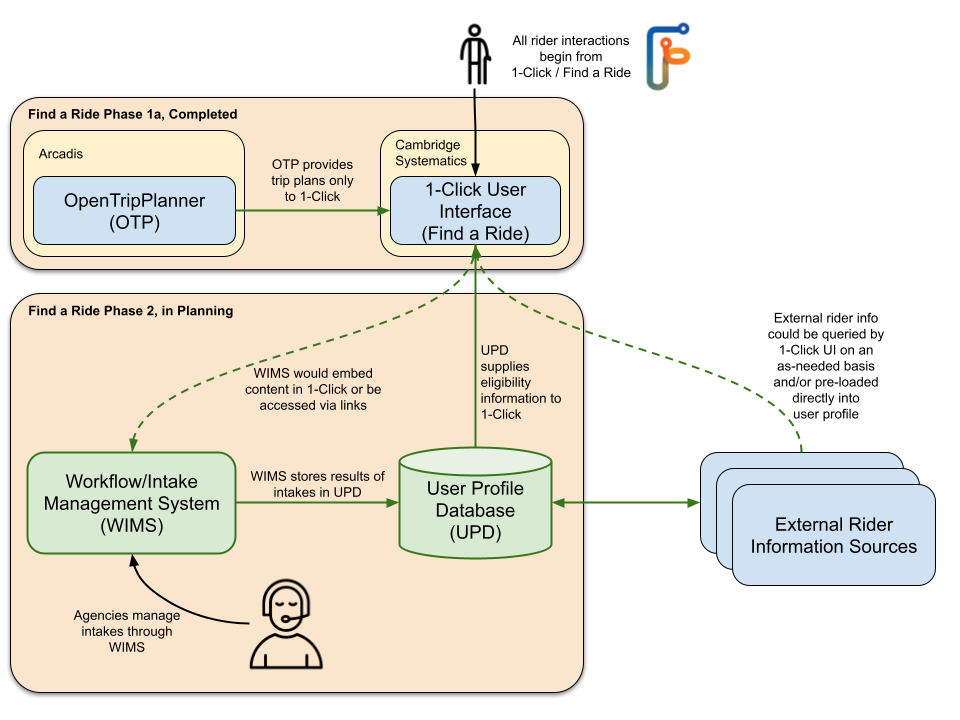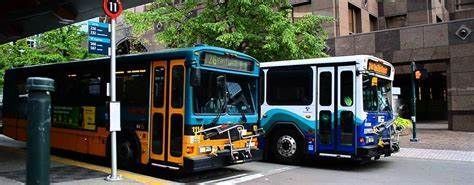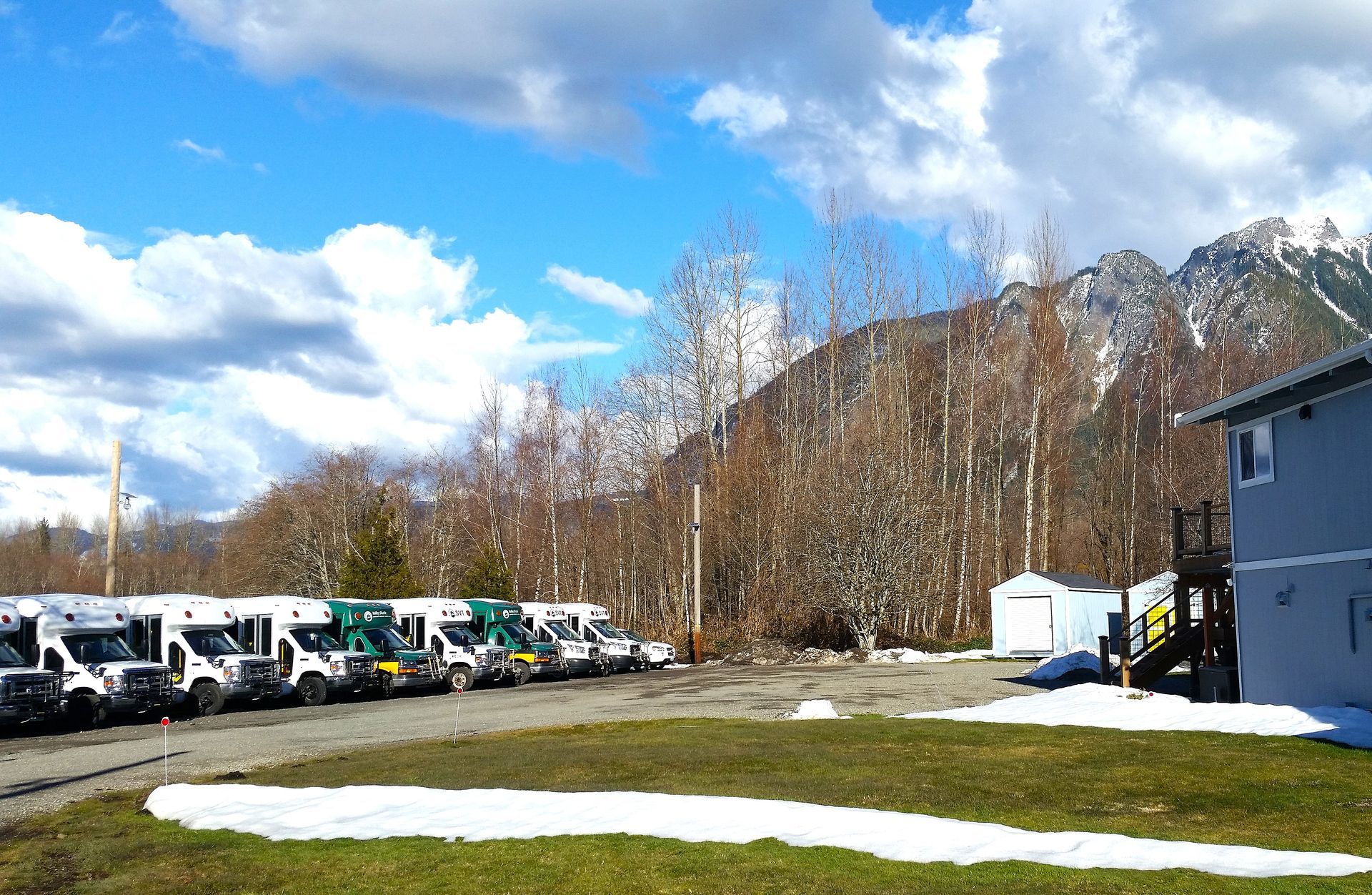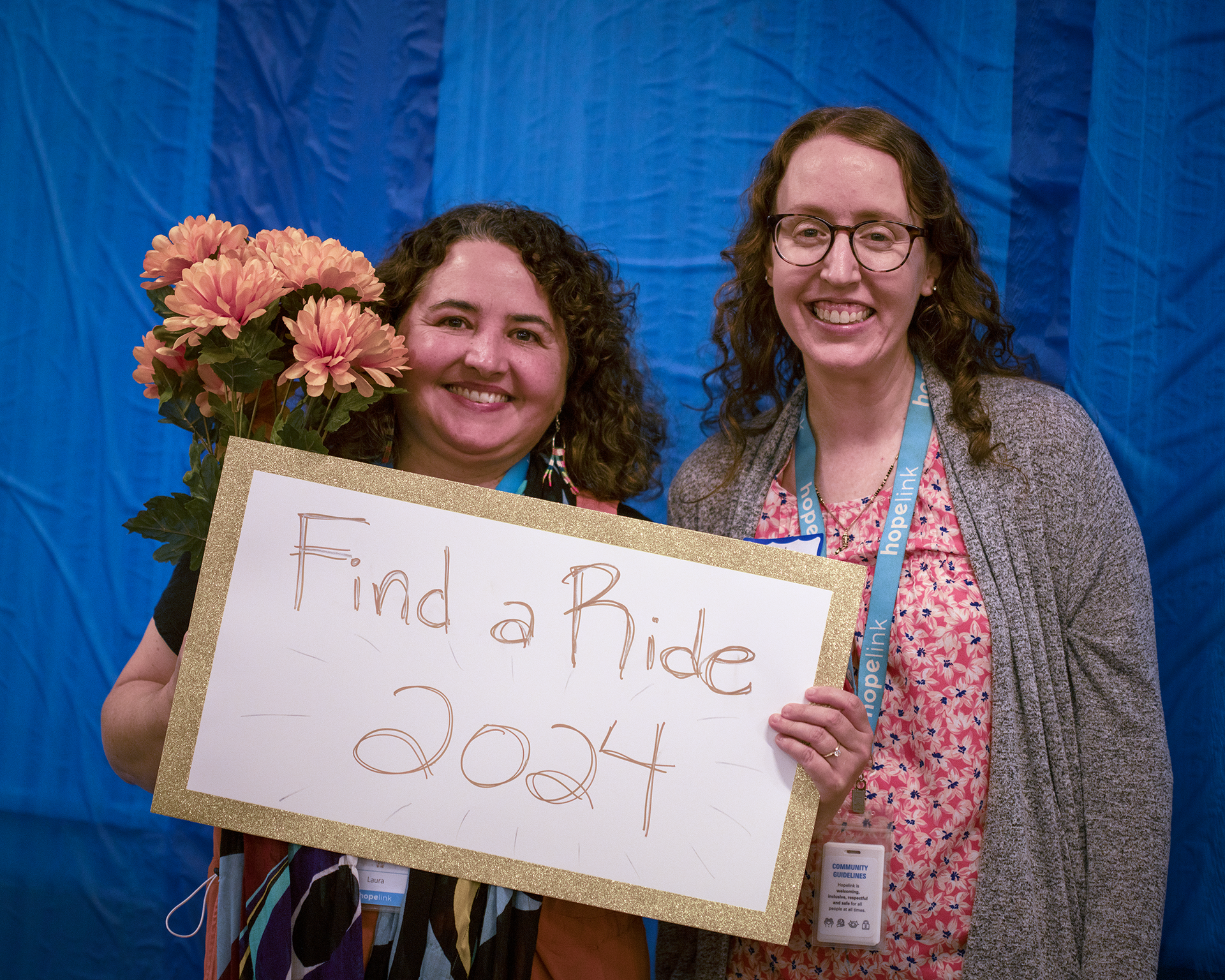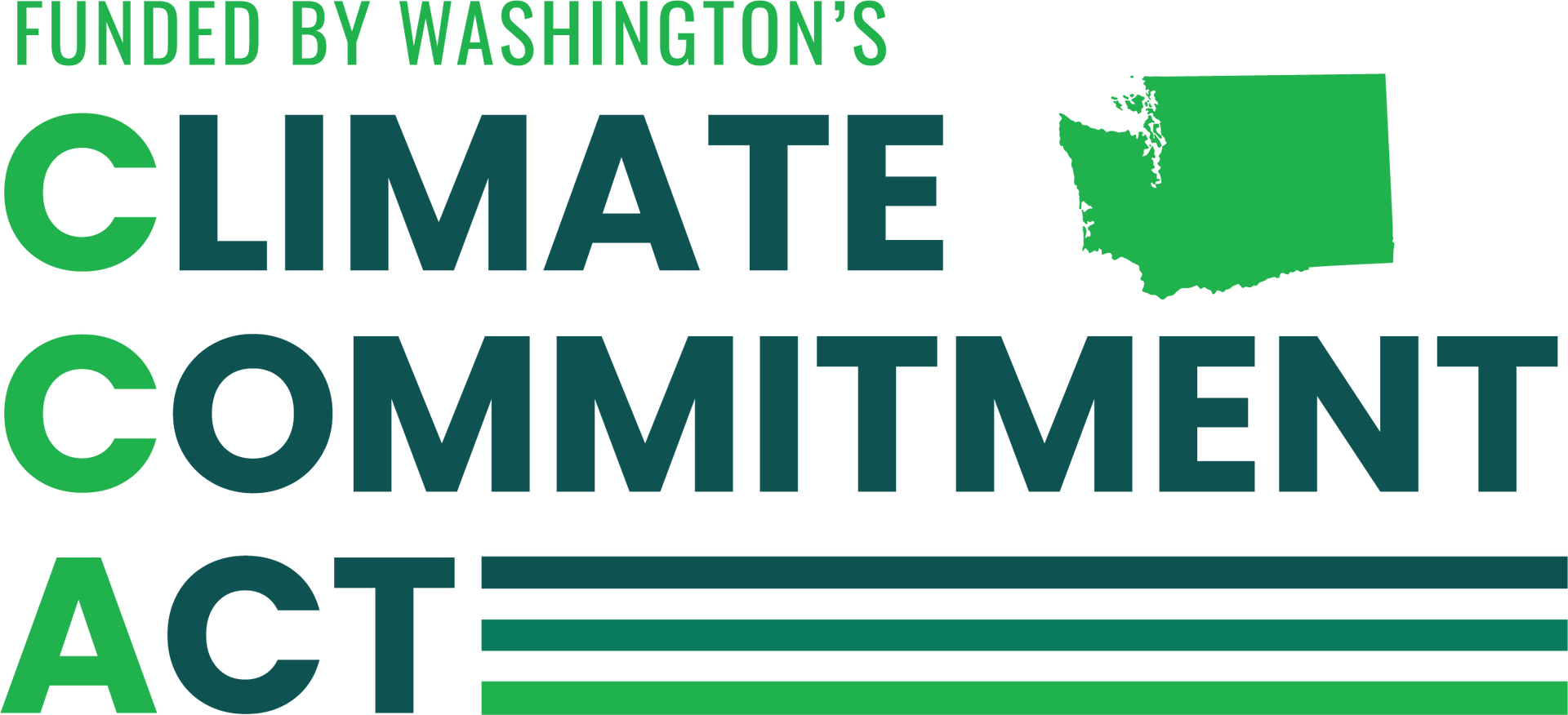50 Years of the Rehabilitation Act
Celebrating Inclusion in Community!
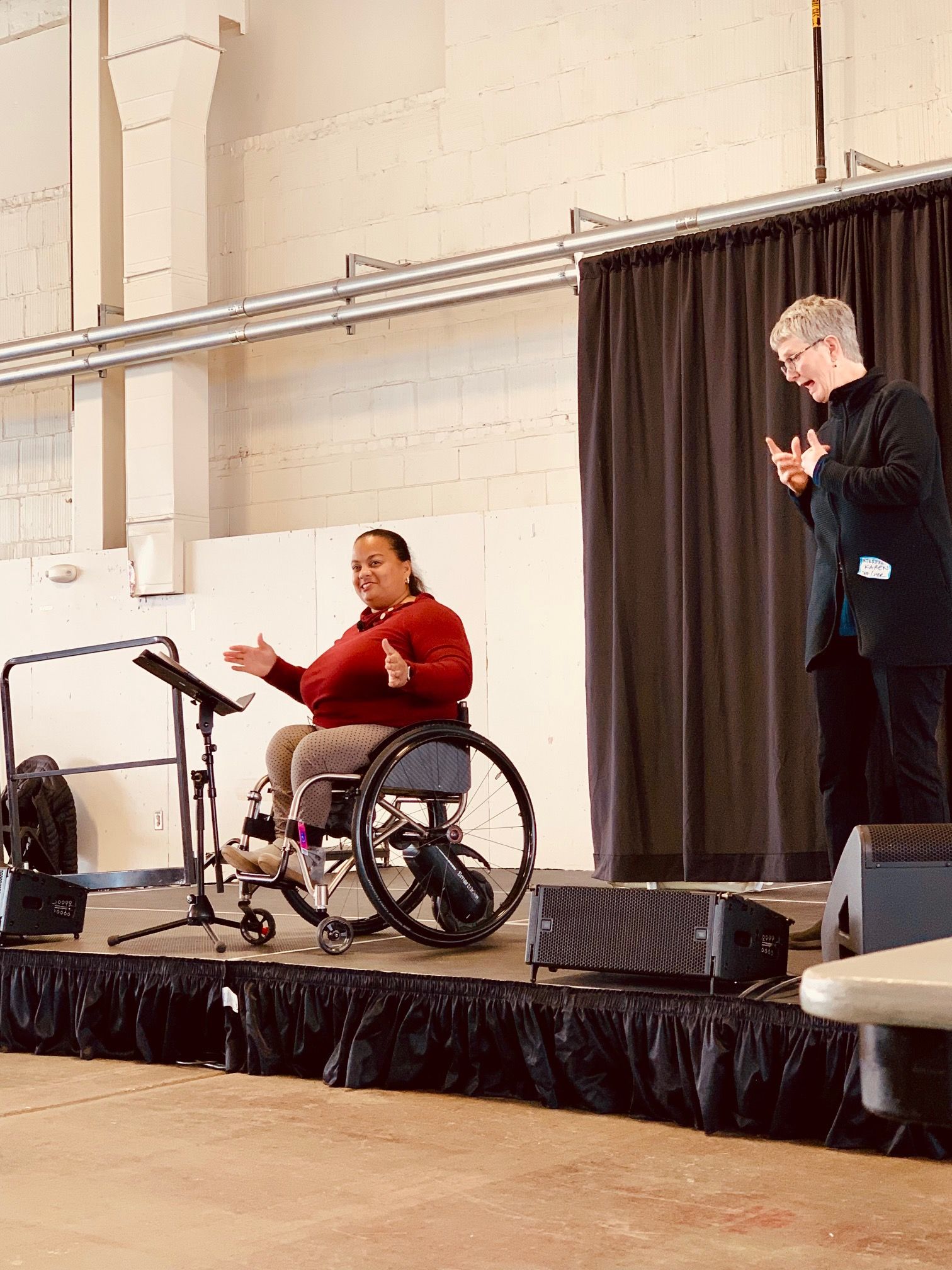
On January 20, 2024, the community came together to celebrate 50 years of the Rehabilitation Act at Magnuson Park’s Hanger 30. The event was organized by the City of Seattle, ARC, University of Washington, The Seattle Public Library, Studio Pacifica, Age Friendly Seattle, Northwest ADA Center, and the National Federation of the Blind Washington. The keynote speaker was Dr. Anjali J. Forber- Pratt, Activist, Paralympic Medalist, Director of the National Institute of Disability, and Independent Living and Rehabilitation Research.
The event included a performance by Fantasy A, a lecture on the history of Section 504 of the Rehabilitation Act by Sushil Oswal, Ph.D., University of Washington, and ASL Story Telling by Loni Friedman.
“The Rehabilitation Act of 1973, as Amended (Rehab Act) prohibits discrimination based on disability in programs conducted by federal agencies, receiving federal financial aid, federal employment, and employment practices of federal contractors. Sections 503 and 504 of the Rehab Act are well known in education settings for supporting students with disabilities. Additionally, there are broad applications of the Rehab Act for labor standards programs that receive federal funding.”
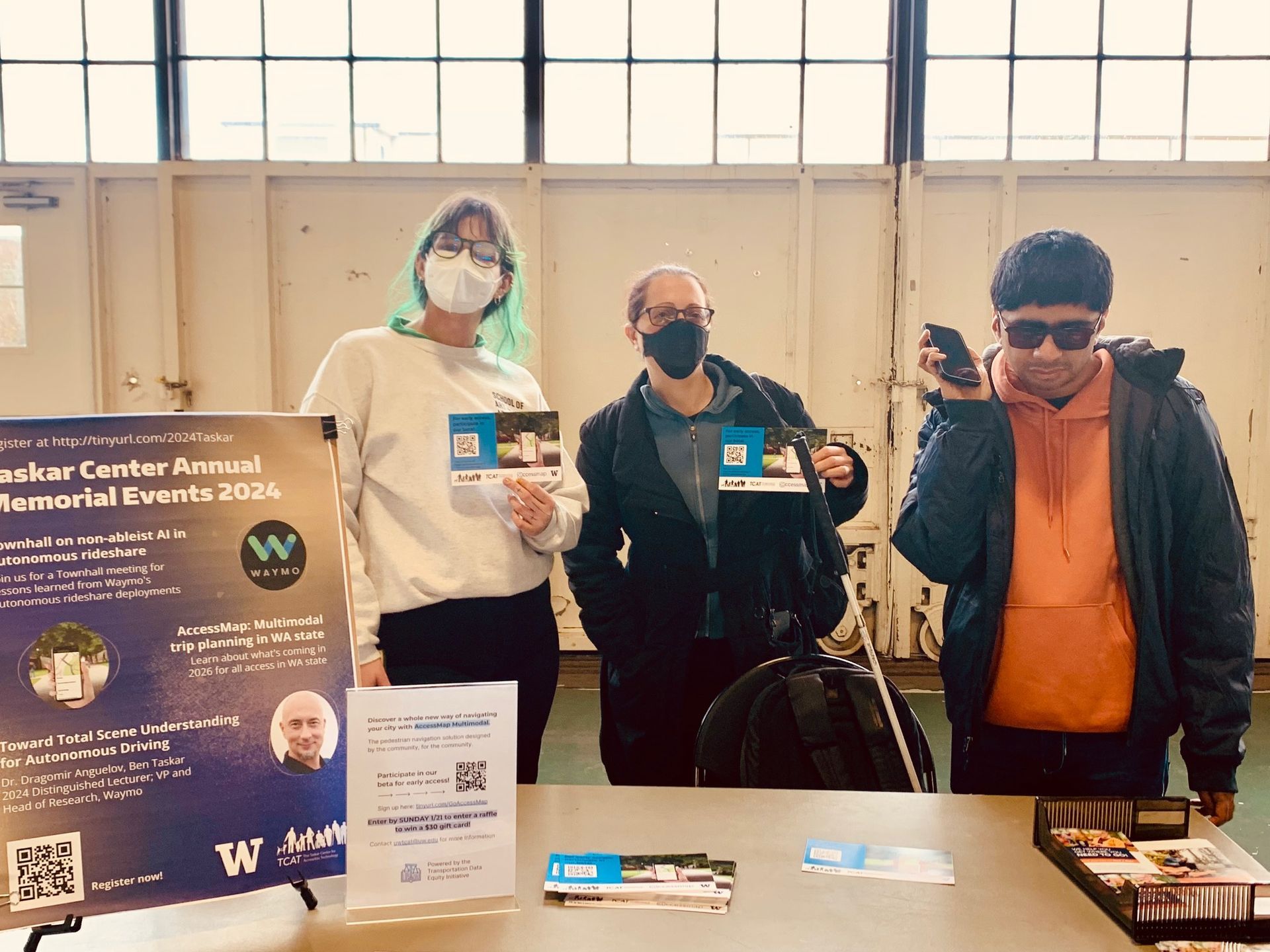
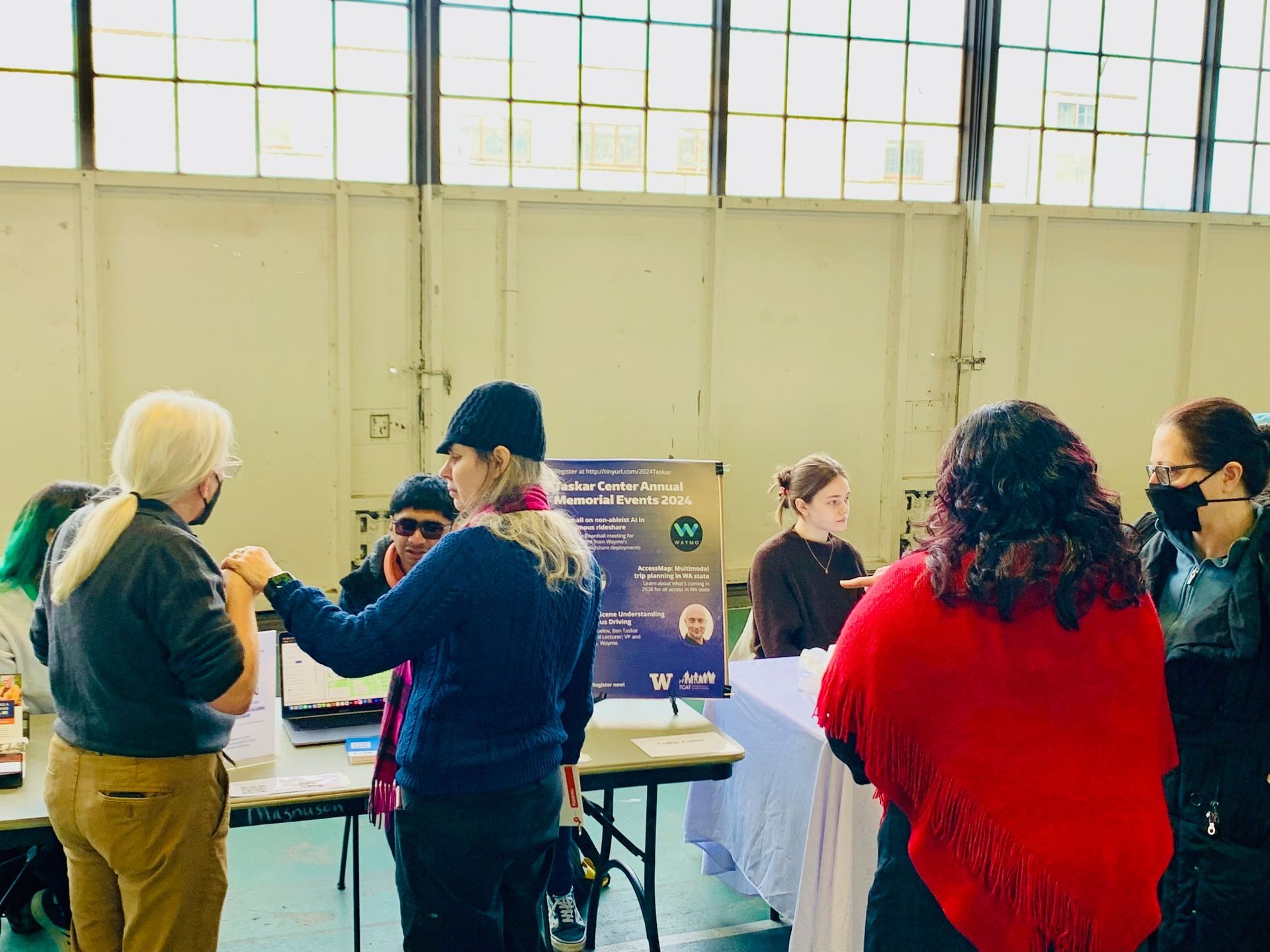
In attendance were several staff members from UW’s The Taskar Center for Accessible Technology. According to their website, “Sidewalks are the primary connecting fabric of our communities and the connection between all other travel options, and yet, for many of us, traveling on sidewalks can present many unanticipated challenges. AccessMap.app closes some of those gaps by incorporating detailed information about pedestrian ways and transit stations for instance, by displaying elevation changes, curb ramps and publicly accessible elevators. Additionally, users can specify information about their own mobility and trip preferences, and the automated routing service presents the best route for the profile".
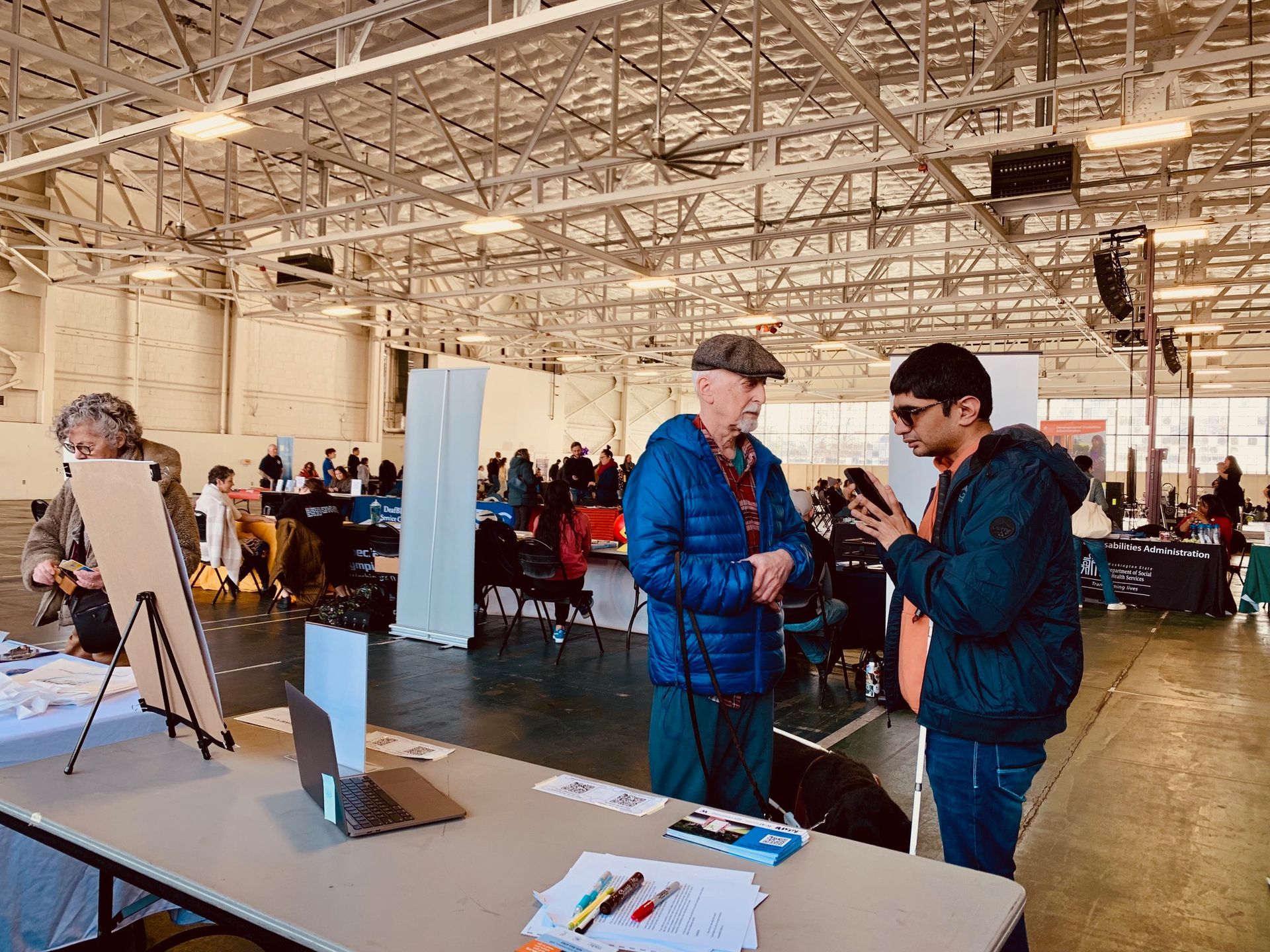
Find a Ride, a program administered by Hopelink, was invited to recruit community testers for our new trip planner at the 50th Anniversary Celebration. Find a Ride is being developed in partnership with King County Mobility Coalition and Advisory Committee oversight. The program focuses on the transportation and access needs of older adults and people with disabilities. Hopelink’s trip planner works towards WCAG (Web Content Accessibility Guidelines) and section 508 conformances (section 508 is part of the Rehab Act). Find a Ride now includes nearly two dozen specialized transportation services for Pierce, King, and Snohomish counties that have never been coordinated in a trip planner. Read our roadmap and business plan to learn more.
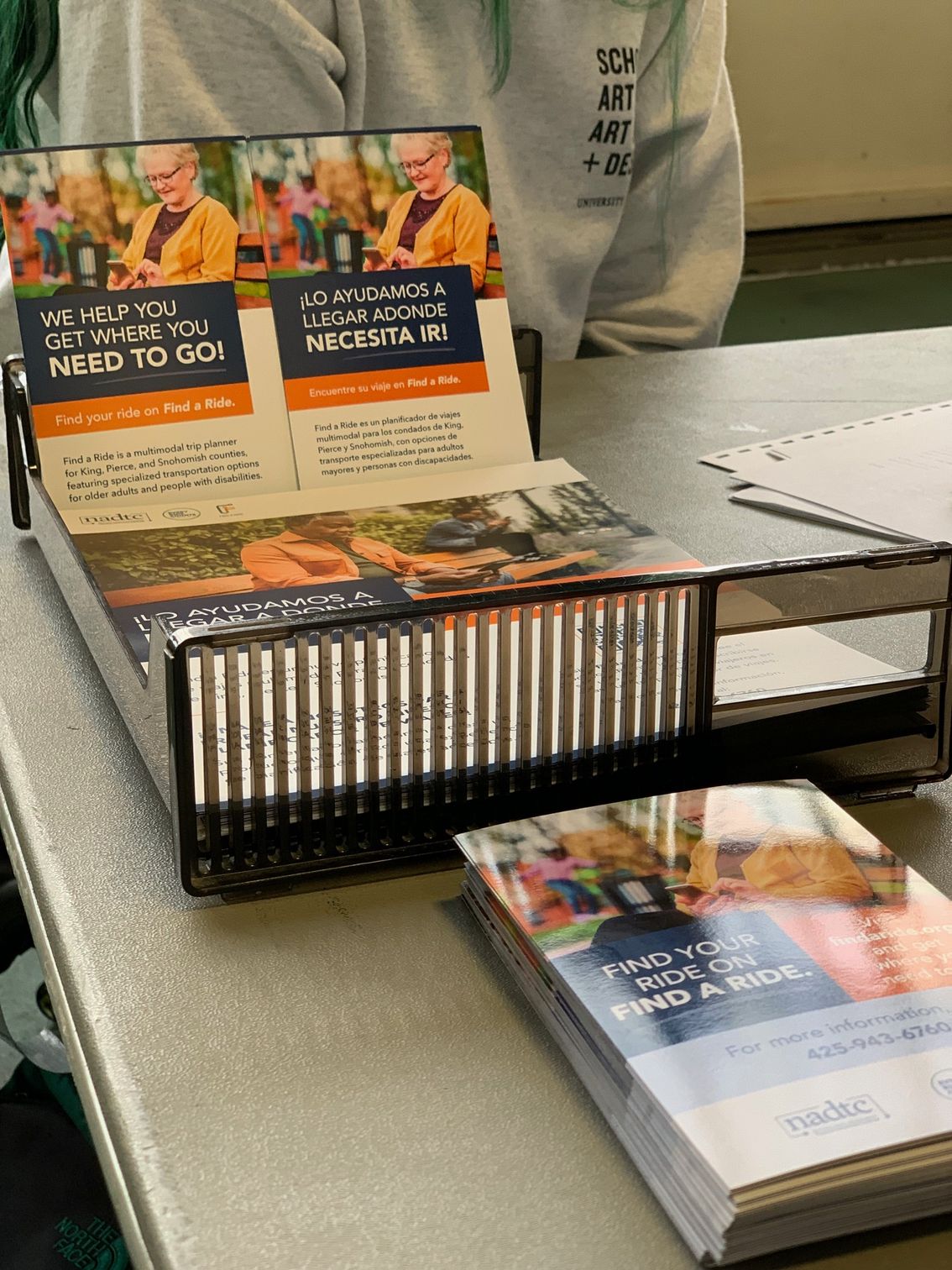
Find a Ride’s trip planner is currently recruiting community testers. VisitFindARide.org to sign up and provide feedback. This feedback will create a unified program that delivers accessible trip-planning experiences. For more information, call 425-943-6760 and press 3.
Below are additional photos from the fantastic event!
